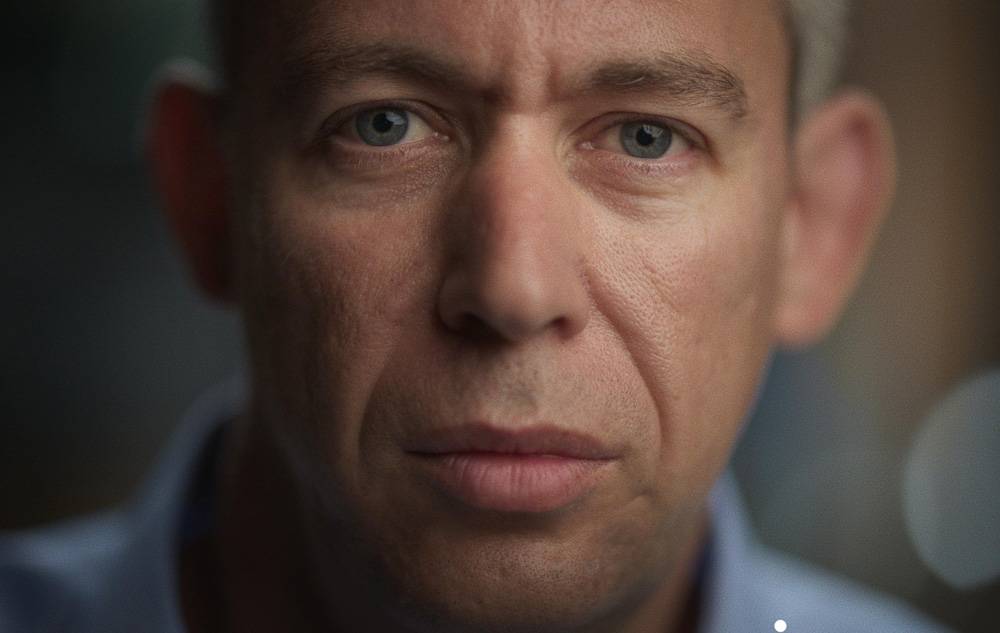“I sometimes describe it as a grey out-of-focus image that over time becomes clearer,” Martin Pistorius says in “Ghost Boy,” attempting to illustrate what it was like to live in his mind as a teenager. Mysteriously struck with an inexplicable neurological malady that left him comatose, he recalls seeing “snatches of light” that he felt compelled to grasp at, but his memory went largely blank and he couldn’t express himself to others either verbally or physically even though he was fully conscious. Although director Rodney Ascher has plunged headfirst into other psychological horrors in films like “The Shining” dissection “Room 237” and the sleep paralysis doc “The Nightmare,” Pistorius offers one of the most harrowing he’s captured to date when caretakers would put him in front of a TV playing “Barney” on a daily basis, with the incapacitated Pistorius saying the theme song “pierced through my soul.”
Pistorius became more observant than most as a result of having to keep his thoughts to himself, and “Ghost Boy” has the pent-up energy of a dam breaking as Ascher adapts Pistorius’ 2011 memoir of the same name about how he emerged from a 12-year period of stasis and learned to communicate with the outside world. Seen first hunting and pecking on a keyboard before a voice emanates from a computer, the film’s introduction of Pistorius respects the time it still takes for a thought to be expressed, but a hypnotic opening credits scene presents the flurry of activity that’s always going on in his head as if a TV is constantly changing channels. Additionally, Ascher has found a visceral way to get inside his mind apart from his own vivid description of events, developing an Ivo Van Hove-style production where a spare central stage is surrounded by towering screens that the director employs to great effect when they can let Pistorius, or rather Jett Harris, the actor playing a younger version of him, be surrounded by all the places he escapes to as he sits catatonic, recalling relationships with various caregivers that could only seem one-way to the person across from him, but full of feelings that he was pained by repressing. (A particularly poignant use is having the giant screens project his wheelchair that he could feel so small in at times.)
Ascher may generally find humanity in the peculiarity and insatiable curiosity of his subjects, but here he locates a real tenderness in Pistorius, who has deeply thought about his time where he felt largely invisible. Yet he could see his impact on others, helpless to do anything about the divide that grew between his parents over his treatment and unable to express to his family the moments where he did appreciate being in their company, going for car rides with his father or watching his brother play video games in which he could feel like he had a presence in their lives. There’s a great tactility to Pistorius’ fierce narration where the psychological and physical struggle seem to merge in his marvelously florid descriptions where the power of the words act as muscle and his perspective can lead to a number of surprising observations such as how it wasn’t only a deprivation of being able to articulate words that prevented Pistorius from speaking, but having no strong foundation of knowledge to build upon, having to wonder when ideas popped up in his head whether they had lived there from before his health took a turn for the worse.
Ascher, who largely relied on savvy editing at the start of his career to stir sensation, shows an increasing mastery over a variety of cinematic elements to make seemingly inert subjects dynamic. Composer Heather McIntosh honors the idea that it always feels like there’s a full chorale living inside of Pistorius aching to get out while liberation ultimately comes from a computer, noted in the synthesizers that start to take over the score, and the way interviews and reenactments are filmed to expose their own trappings reinforce the limitations Pistorius once felt in sharing his own experience and the space he’s reclaimed. When verbal communication previously made Pistorius unable to connect with others, it is certainly a powerful element here, but merely a part of a film that works on plenty of other levels.
“Ghost Boy” will screen again at SXSW on March 8th at 2:30 pm at AFS Cinema and March 12th at 3 pm at Violet Crown Cinema 2 and 4.




